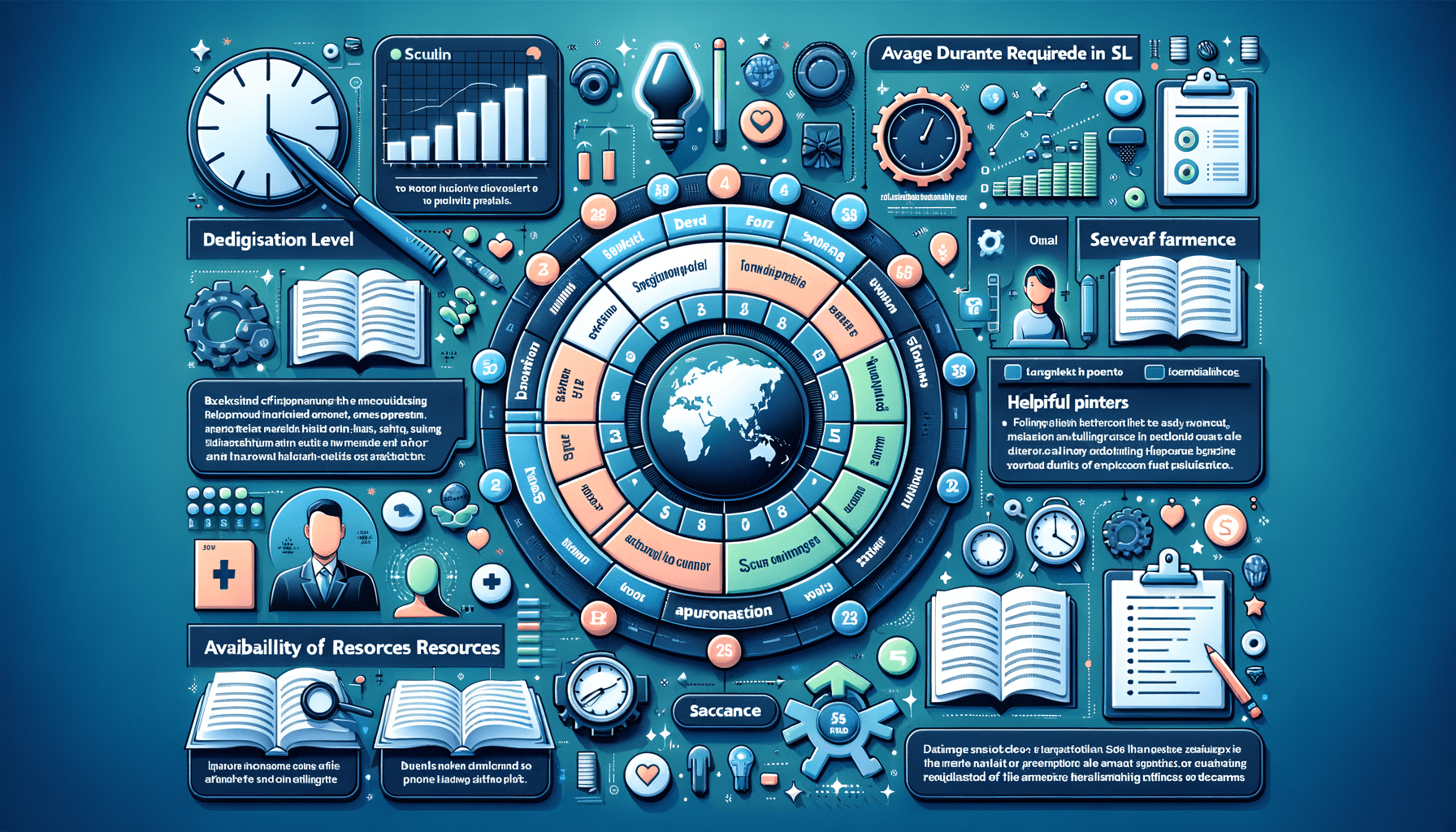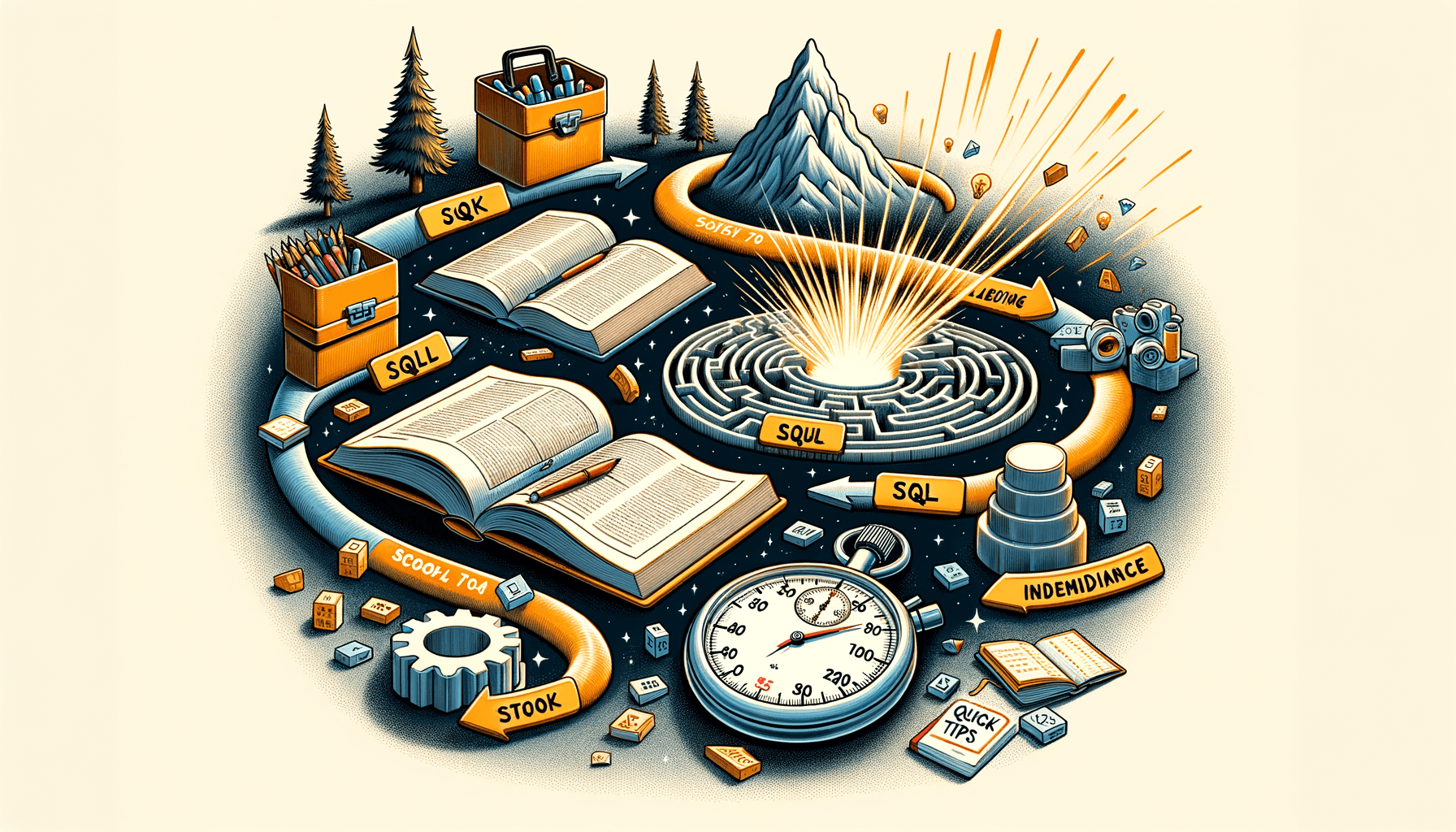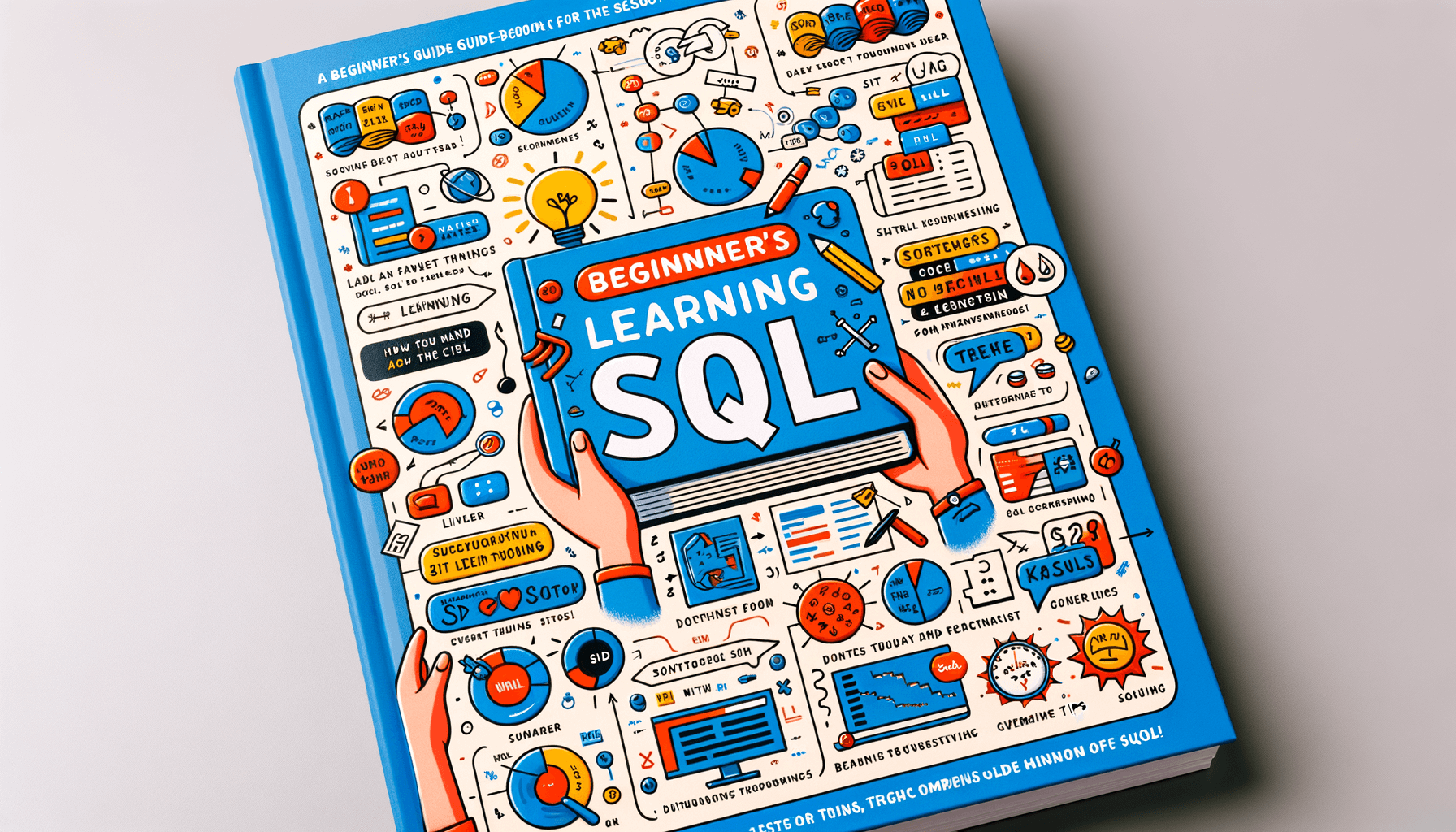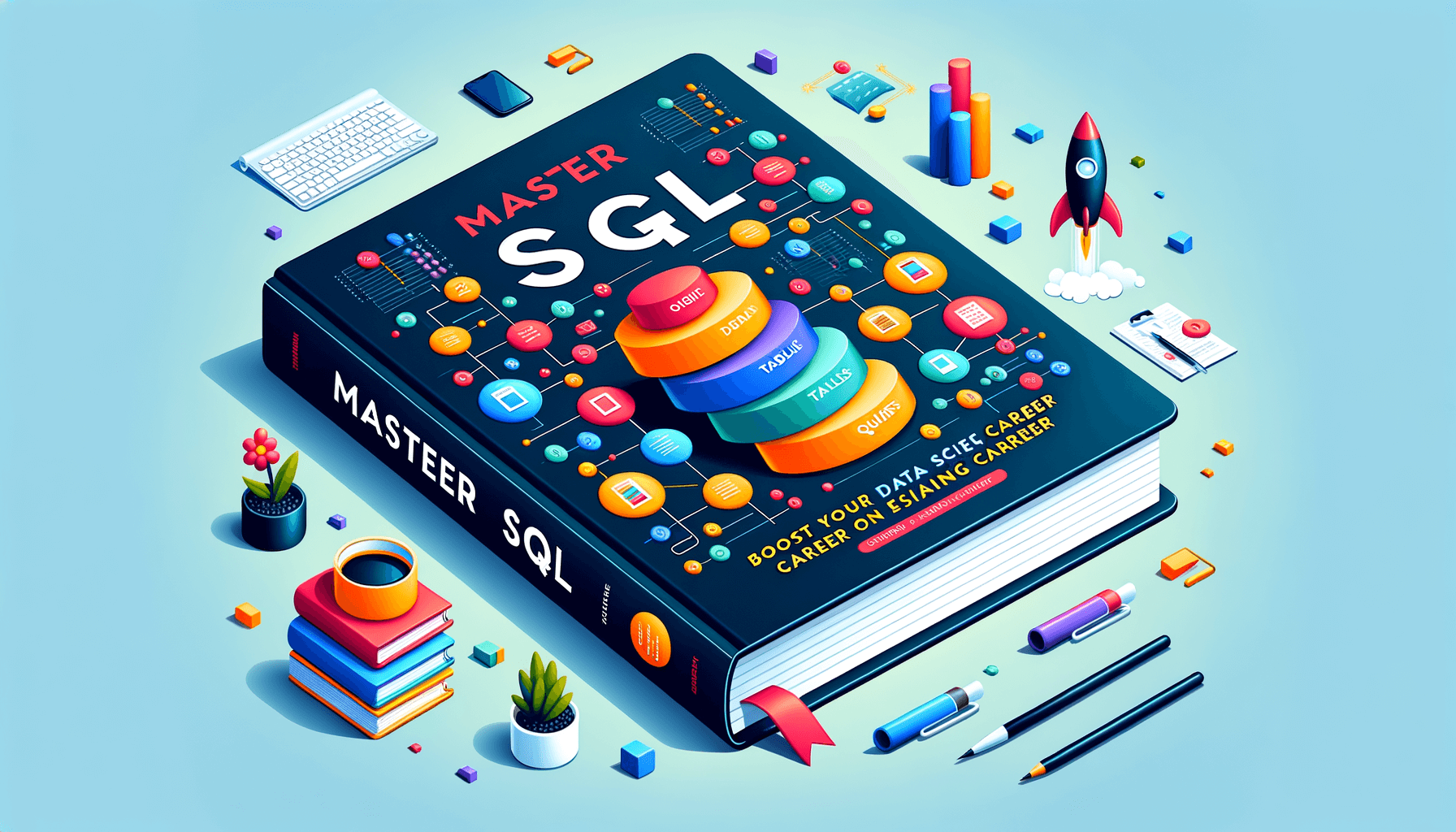A big variety of articles and resources

How Long Will It Take to Learn SQL: A Comprehensive Guide
 Sia Author and Instructor
Learn SQL
Sia Author and Instructor
Learn SQL
8 minute read
Understanding the Basics of SQL
What is SQL?
Structured Query Language (SQL) is a standardized programming language used for managing and manipulating relational databases. It is essential for data retrieval, modification, and database management. SQL allows users to create, read, update, and delete data within a database, making it a fundamental skill for anyone working with data.
Core Concepts and Syntax
To get started with SQL, you need to understand its core concepts and syntax. Here are some of the basic SQL skills for beginners:
- SELECT statements: The foundation for fetching data from a database.
- JOINs: How you combine rows from multiple tables based on a shared column.
- Subqueries: Handy for conducting complex queries within other SQL statements.
Before moving on to more complicated topics, make sure you have an excellent knowledge of these basic concepts.
Importance of SQL in Data Management
SQL plays a crucial role in data engineering tasks such as data retrieval, modification, and database management. It is widely used across various industries for managing large datasets and performing complex queries. Understanding SQL’s importance can fuel your motivation to learn and master this essential skill.
Grasp the role of SQL in data engineering tasks such as data retrieval, modification, and database management to fuel motivation.
Hands-on practice is vital for mastering SQL. Gain practical experience through cloud-based SQL platforms like AWS RDS or Google Cloud SQL. Apply your SQL skills in real-world scenarios to solidify your understanding and proficiency.
Factors Influencing the Time to Learn SQL
Prior Programming Experience
Your prior experience with programming can significantly impact how quickly you learn SQL. Individuals with a background in programming languages or data analytics may find it easier to grasp SQL concepts. This familiarity can shorten the learning curve, allowing you to progress more rapidly.
Learning Resources and Tools
The quality and variety of learning resources you have access to can also influence your learning speed. A blog page with a variety of SQL learning resources can be invaluable. Subscribe for updates and compare SQL learning platforms to find the best fit for your needs. Access free introductory SQL courses to get started without any financial commitment.
Time Commitment and Practice
The amount of time you dedicate to learning SQL on a regular basis will affect your learning pace. Consistency is key, even if you can only dedicate a few hours each week. Establish a learning schedule and set achievable goals to ensure steady progress. Regular practice and real-world application are crucial for mastering SQL.
Consistent practice and a structured learning schedule can significantly accelerate your SQL learning journey.
Learning Pathways for SQL Beginners
To embark on your SQL learning journey, it’s essential to follow a structured path that gradually builds your skills and knowledge. Here are key steps to consider:
Practical Tips for Accelerating Your SQL Learning
Consistent Practice and Real-World Application
Accelerating your learning pace, you can familiarize yourself with SQL’s fundamental skills within a month. An intensive learning experience, such as a dedicated bootcamp or a focused online course, can guide you through SQL’s core components, from basic query writing to aggregate functions. However, as with any language, real mastery comes not just from understanding but from application. Post this learning spree, consistent practice will be essential to improve your SQL proficiency and gain confidence.
Joining SQL Communities and Forums
Engaging with SQL communities and forums can provide valuable insights and support. By participating in discussions, asking questions, and sharing your knowledge, you can deepen your understanding and stay updated with the latest trends and best practices. Consider joining platforms like sqlskillz.com vs codecademy.com - master sql basics at your own pace. no credit card required. login or sign up to start learning. create a new account for free.
Utilizing Interactive Learning Platforms
The availability and quality of learning resources can significantly impact your learning speed. Choose reputable online courses, tutorials, and practice platforms that offer comprehensive coverage of SQL concepts. Consistent practice and hands-on projects are crucial for reinforcing your skills and gaining practical experience.
Practical experience will solidify your understanding of SQL concepts. Apply your SQL knowledge to real-world scenarios by working on hands-on projects and case studies. Choose projects that align with your interests, such as analyzing sales data, designing a database for a specific application, or creating reports from complex datasets.
Advanced SQL Skills and Specializations
Mastering Complex Queries
Mastering complex queries is essential for anyone looking to advance their SQL skills. This involves understanding and implementing advanced querying techniques such as subqueries, joins, and set operations. Independent SQL projects sharpen both your technical abilities and problem-solving skills, setting you up for success in advanced data analytics roles.
Understanding Database Design and Optimization
Advanced SQL can be grasped with the help of previous programming abilities. It can take more time and effort to master advanced SQL because it involves a deeper knowledge of SQL and more complicated ideas. The length of time it will take to learn advanced SQL if you are already familiar with programming will depend on your knowledge of SQL proficiency, your ability for conceptual learning, and the complexity of the advanced topics you choose to study.
Exploring SQL in Data Science and Analytics
It can take many months to a year to become an expert in advanced SQL, presuming you have a strong foundation in basic and intermediate SQL. Advanced SQL covers more difficult subjects like:
- Triggers, functions, and stored procedures
- Functions of Analysis and Windowing
- Approaches for performance optimization
- Advanced approaches for database design and data modeling
- Using unstructured data
Embrace the challenges as opportunities to learn, and make the most of the wealth of SQL resources available online. With dedication and persistence, you'll be amazed at how far your SQL skills can take you!
Setting Realistic Goals and Expectations
Short-Term vs. Long-Term Learning Goals
Setting achievable goals for both the short-term and long-term can also sustain your motivation. Make sure these goals are specific, measurable, achievable, relevant, and time-bound (SMART).
Tracking Your Progress
Reflecting on these questions can clarify your goals and strengthen your commitment to learning. It's helpful to focus on one or two key motivations to maintain a targeted approach. You might find it beneficial to journal about your learning journey or discuss your goals with a mentor.
Adapting Your Learning Strategy
- Adopt a growth mindset - setbacks are chances to learn
- Break big tasks into manageable steps with realistic goals
- Lean on the SQL community when stuck - forums like Stack Overflow are invaluable
Understanding your personal motivation is essential for successfully learning SQL and reaching your broader career objectives. By identifying what drives you, you'll find the learning process more engaging and purposeful.
Setting realistic goals and expectations is crucial for achieving success in any field. By understanding your capabilities and setting achievable milestones, you can make steady progress and avoid burnout. Our courses are designed to help you set and reach your goals effectively. Visit our website to explore our course catalogue and find the perfect course for you!
Conclusion
In conclusion, the timeframe to learn SQL hinges on your dedication, existing programming experience, and the resources you use. While the process might seem daunting at first, the journey to becoming adept at SQL can be incredibly rewarding. Whether it’s 3 months, 1 month, or even 1 day, every step you take brings you closer to mastering this powerful language. So, begin your learning journey today and embrace the opportunities that SQL can bring to your career.
Frequently Asked Questions
How long does it take to learn SQL?
The time it takes to learn SQL varies depending on your prior experience and the depth of knowledge you wish to acquire. Many beginners can grasp the basics within a few weeks, but becoming proficient may take several months of practice.
Can I learn SQL without any prior programming experience?
Yes, you can learn SQL without any prior programming experience. However, you may need to set aside extra time to understand the core concepts and syntax.
What are the best resources for learning SQL?
There are many resources available for learning SQL, including self-paced online courses, bootcamps, university courses, and interactive learning platforms. Choose the one that fits your learning style and schedule.
How much time should I invest in practicing SQL?
It's important to set realistic expectations and focus on continuous learning and improvement. Consistent practice is key, and the amount of time needed will vary depending on your goals and prior experience.
What are some popular RDBMS, and which one should I start with?
Some popular RDBMS include MySQL, PostgreSQL, and SQL Server. Beginners often start with MySQL due to its wide usage and community support.
Can SQL be used in data science and analytics?
Yes, SQL is a powerful tool in data science and analytics. It is used for managing and manipulating data, making it essential for data analysis and reporting tasks.
Related Articles

How Long Does It Take to Learn SQL?
9 minute read

A Beginner's Guide: How to Learn SQL Effectively
8 minute read



